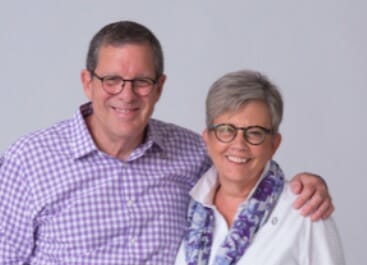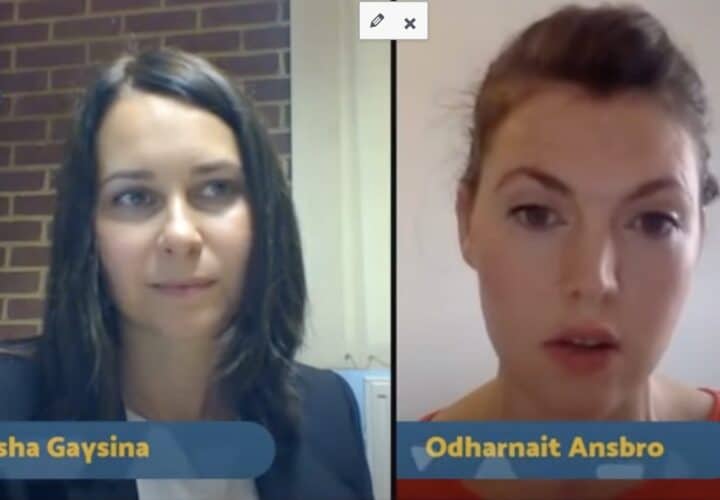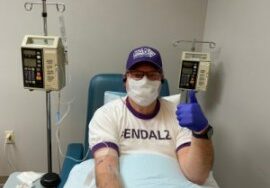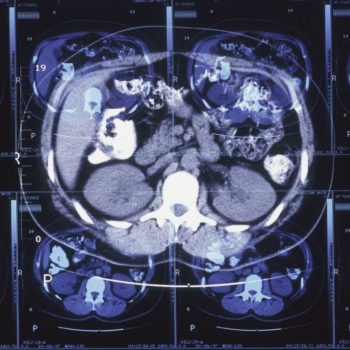Being Patient spoke with Jim Butler, who was diagnosed with Alzheimer’s four years ago, about his efforts to “disarm” his diagnosis by rewiring his internal dialogue.
Being Patient spoke with Jim Butler, who was diagnosed with Alzheimer’s four years ago, about his efforts to “disarm” his diagnosis by rewiring his internal dialogue—and aiming to reduce stress, depression and anxiety along the way. Butler’s key advice to those newly diagnosed?
- Be gentle with yourself. There are days when Butler is angry, frustrated and heartbroken. But he reminds himself of the people that he strives to live up to: loved ones like his wife and friends.
- Talk to your peers and friends about your thoughts. Butler advises others to engage with their local churches, hospitals and Alzheimer’s organizations and support groups.
- Try to relax when you are forgetful. It’ll come back to you, Butler says.
Being Patient: Tell us what you mean by “disarming” an Alzheimer’s diagnosis?
Jim Butler: I have cognitive issues. It has to do with memory, confusion and stuff that I was able to do routinely for my whole life and now I have to search for it when I’m looking to pull that up from my brain.
When I got my diagnosis, I had the good fortune to be in groups of a lot of people that had been covering the same ground as I was then—covering for years before me and I had learnt a lot from them.
I was so worried when I got my diagnosis. I was frightened and unsure of myself. Every time I’d have a cognitive hiccup—and I do a couple of dozen times a day—I’d think I was getting worse. I’d worry about it. I’d get angry or frustrated about it.
After a while, I learnt from being around these folks that had covered that ground before me to be gentle with yourself and don’t get impatient, angry and frustrated. I try and smile at everybody. When I have a hiccup, when I have something I can’t remember, I smile and say, “Just relax, Jim.” And it’ll come back. It usually does.
If I’m at a store and interacting with someone that I’m not familiar with and they give me a bunch of instructions or messages, I’ll say, “I can’t absorb quite that fast.” I’ll ask them, “Slow down. I have cognitive issues. I have Alzheimer’s. Please run it by me again.”
That’s my way of being gentle with myself. And if I’m gentle with myself, I’m gentle with most everything in my life—probably more so than before I got this Alzheimer’s diagnosis, so that’s an upside to having this condition.
Being Patient: When did you first notice that maybe something was wrong? How did it first manifest?
Jim Butler: My father would say: My clutch was slipping in an old stick shift car. I would forget things. I would be having trouble doing something that I was trying to accomplish. But I’m a guy so I would just get angry and blow it off.
I had an issue at the Apple store in Chicago. My phone conked out and I went in there and I had never been Mr. High Technology, but they gave me a new phone. They were trying to download it. They were telling me stuff to do. I couldn’t do it. I couldn’t follow them. I just couldn’t get in sync with it.
That was the thing that resonated with me strongly. I was leaving the Apple store and I was going to our second home in Michigan. And I was thinking to myself: “There’s something going on. You’ve been thinking about this for a year and you need to look at it. You need to address it.”
Being Patient: At that point when you were noticing something was wrong, were other people like your wife or people you’re close to picking up signs or did you disguise it well?
I didn’t pick that up from anybody that they were noticing my forgetfulness and I certainly wasn’t sharing it with anybody. I just kept it quiet to myself. When I was doing it, I’d always think: “My dear, I have Alzheimer’s.” That was kind of in the background for me for that year or year and a half before I reached out and engaged with it that I was thinking, “Am I going where my dad went?”
Being Patient: What was it like getting an Alzheimer’s diagnosis for you—was it a lengthy process?
Jim Butler: It was probably a three month process until we got the diagnosis. You start off with the cognitive testing. Northwestern Memorial Hospital in Chicago is quite the big player in the Midwest here. So they have a lot of resources.
You get to flunk your way into the next test. It started out with cognitive testing and memory testing. I ended up getting an MRI and eventually a lumbar puncture. They showed the tau and amyloid that are markers of Alzheimer’s.
Being Patient: Patients describe that there are these periods of lucidity that appear, days when there seems to be nothing wrong while there are other days when they seem to be slipping down that slope. Would you describe it that way?
Jim Butler: I don’t ever have the thought that, “Hey, I don’t feel like I have it.” But some days are easier and more fluid and they work better than other days. Some days, I’m just sailing through a lot of stuff. I don’t mean to say that I don’t have forgetfulness—I do, my forgetfulness happens dozens of times a day—but it’s not the kind of thing where you trip. You just close your eyes and think about it for a moment. You try to relax. It’ll come back to you.
There are difficult days like every darn thing I try to accomplish is so complicated and frustrating. It’s like to hell with it all. I’ll write it down and do it tomorrow. I certainly have those days.
I enjoy every day. I try and make it my business to enjoy every day. I certainly have frustrations and I don’t mean to sit here and talk on this program and say I don’t get frustrated, pissed off, really sad and heartbroken. Because I do get that way frequently. But it’s real important for me to pull myself out of there.
I’ve got a great marriage and a lot of wonderful people in my life and I’m financially secure. I don’t want to waste any of this time. I don’t know how much time I’m going to have going forward and I don’t want to waste a darn bit of it by being resentful. I’m blessed with a lot of good people in my life and I want to live up to that.
Being Patient: What are some of your coping strategies?
Jim Butler: I met a friend of mine and we both have dogs. We took them to a lakefront here in Chicago. It was 55 degrees in Chicago and at this time of the year in Chicago—that’s a gift. Everybody is social distancing of course but the lakefront was full of people and the dogs were running around.
When we were driving back, Bob and I were talking and I was telling him, “You know what? These last couple days—maybe I have too many moving parts going on—but I feel like I’m getting worse.” That is what I shared with Bob. I didn’t share that with my wife.
But I did share that with Bob today. I said, “Sometimes, I think these cognitive issues are getting a little worse I think.” And Bob said, “Jeez, I didn’t know that was a thing, Jim.” And I thank him for that. It could just be me being critical of myself. I don’t know but I was with a guy who was a good friend of mine that I can talk to.
Again, the stuff that’s knocking around my head, that I’m tripping over and having a hard time with and not wanting to talk about are the things that I need to talk about to someone and not always my wife. Maybe someone else. But those are all coping mechanisms for me and my way of dealing with this.
Being Patient: The coronavirus outbreak is on everyone’s mind. Has this time been difficult for you and how are you dealing with COVID-19?
Jim Butler: I’m proud of what I see around Chicago and in the stores in Michigan, Chicago or wherever I’m at. When I was on the walk with Bob this afternoon on the waterfront, there’s acres and acres of land and if people were five feet away from you, they would move over 10 or 15 feet away when you passed and smile at each other. It was the spirit that we’re all pulling on this thing so it was great fun to be there. It was the perfect thing to do today.
Being Patient: What is your sage advice for people who have just received the diagnosis of Alzheimer’s or are experiencing cognitive difficulties?
Jim Butler: My sage advice is to reach out to the Alzheimer’s Association. There are a lot of resources out there. There’s a chapter of the National Alzheimer’s Association in every state that there is. They can engage people in support groups and in a lot of different things.
For me, being with my peers, learning from people who are covering this ground before I did and share stuff with me is enormously important. If you can possibly engage with other people that can help you on this front—your hospital, perhaps your churches—a lot of entities around have support for the diagnosis, I would strongly encourage them to engage.





